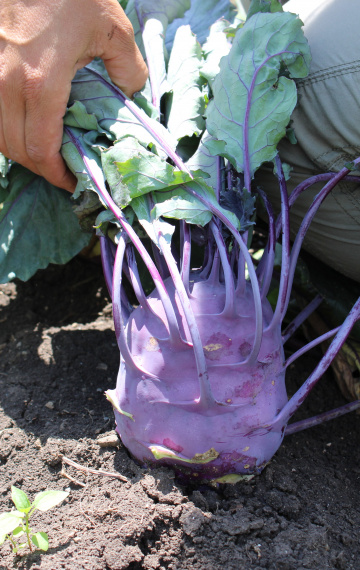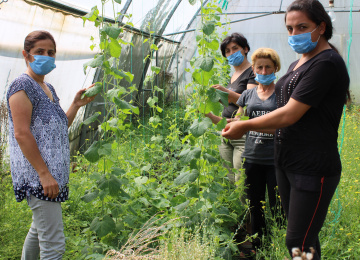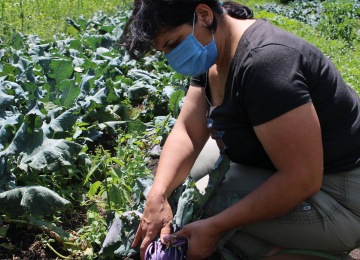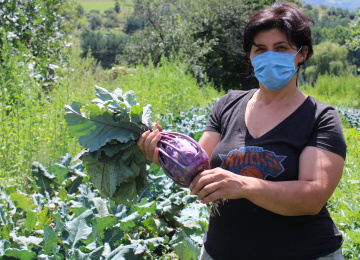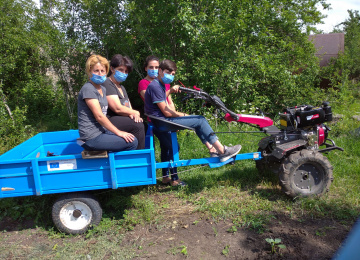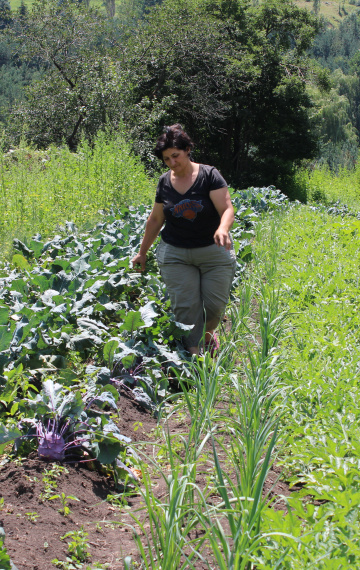In remote regions of Armenia, high poverty levels are the norm as there are few economic opportunities outside of farming and unemployment rates are above the national average. One such province is home to Alvard Davoyan, a farmer from Vardablur, a small, isolated village tucked away in the forests of the province of Lori.
For those working in agriculture, a remote location often means limited access to markets. That’s why Davoyan and five other women decided to set-up the Vardablur Women’s Agricultural Cooperative, with Alvard at the head. They are united in their love of farming and their drive to withstand the challenges of rural life.
Over the last four years, the women have been growing organic greens and vegetables in their family gardens and selling their healthy produce to local markets and restaurants.
EU partners the South Caucasus
When the pandemic spread to Armenia, life came to a sudden halt. Most of Davoyan’s usual markets closed and the women’s cooperative didn’t have the means to scale up production to supply some of the bigger, more diversified markets in the region. Thanks to a longstanding partnership with the EU, though, Davoyan and others were able to quickly get back to doing what they love most: farming local produce.
“The European Union literally rescued our cooperative and many other smaller, more vulnerable farmers in the region,” says Davoyan. “They helped us increase yields immediately and offered an effective long-term solution.”
The women received support from the EU-Green Agriculture Initiative in Armenia (EU-GAIA), co-funded by the EU as part of its EU4Business Initiative and the Austrian Development Agency. For the EU, this project is part of broader cooperation with its closest neighbors. For Austria, Armenia is a priority country for development cooperation, with a focus on raising agricultural productivity.
EU-GAIA kicked off in Yerevan in March 2020, with the purpose of developing Armenia’s sustainable agribusinesses. It arrived just in time to help during the pandemic. The support meant that farmers could increase their yield, diversify production and become more self-reliant during these difficult times.
With EU assistance, farmers across the country received innovative machinery that’s multifunctional, energy-saving, and less harmful to the environment.
Partners beyond the crisis
Beyond Covid-19, the project is part of the EU’s green recovery plan. It will directly support around 200 agribusinesses in Armenia. Retailers and consumers will benefit from diversity and better quality of products.
By stimulating investment and innovation in farming, both inside and outside the EU, the Union is working to make the sector more sustainable in the future. This will not only help address food insecurity and poverty, but will also contribute to protecting the environment and tackling climate change.
“Thanks to the EU and the Austrian Development Agency, we are now able to expand our arable land cultivation already this year,” says Davoyan. “We’re thankful beyond words and will never forget this support.”

